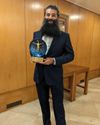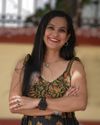
Have you read a book and wondered from whose eyes you have been walking through? Point of View will tell you who is the narrator and his or her relationship with the characters in the story.
In Storytelling, first thing is to decide the point of view that the story will take. Whether it will be in the first person, second person, or third person point of view. With first and third-person used more frequently, the second person point of view is used less frequently but still, it is being taught in writing classes.
The differences between the first person and third-person point of view are many. How do you identify which one is the story using? The pronouns come into play when you need to know from whose perspective the story is being told.
The pronouns I, we are first-person and refer to the author himself. The pronoun 'you, which is used for both singular and plural antecedents, depicts the usage of the second person point of view. Lastly the pronouns he, she, refer to the usage of third-person point of view. You can easily identify a narrative and classify them as first person, second person, or third person based on the pronouns used.
FIRST PERSON POINT OF VIEW
In the first-person point of view, the narrator or the author is writing the story from his own independent perspective. You will see the pronouns I (or we if the author is a group of people or representing a group or a team).
هذه القصة مأخوذة من طبعة August 2021 من Storizen.
ابدأ النسخة التجريبية المجانية من Magzter GOLD لمدة 7 أيام للوصول إلى آلاف القصص المتميزة المنسقة وأكثر من 9,000 مجلة وصحيفة.
بالفعل مشترك ? تسجيل الدخول
هذه القصة مأخوذة من طبعة August 2021 من Storizen.
ابدأ النسخة التجريبية المجانية من Magzter GOLD لمدة 7 أيام للوصول إلى آلاف القصص المتميزة المنسقة وأكثر من 9,000 مجلة وصحيفة.
بالفعل مشترك? تسجيل الدخول

Firefly Gifting Lanterns...
A bilingual poet-writer(Tamil, English), Madhumathi. H is an ardent lover of Nature, Poetry, Photography, Music.

SOJOURNER IN THE UNDERWORLD
In her own words, Dr. Pallavi Dongare is a Consultant Pediatrician by profession - I consider myself an accidental poet or writer which still I am unsure about!

LET IT GO TO BEGIN A NEW CHAPTER
Sucharita is the author of three books, \"Estrenar: The Beginning Of A New journey\", \"Merak\", and \"Ayanam: The Incredible Path\". Estrenar and Merak are books filled with poems, whereas Ayanam is about day-to-day quotes. She has co-authored ten anthologies to date. Her debut book, Estrenar, has been translated into five foreign languages so far. Renowned poets like Dr Jayanta Mahapatra and Dr Sitakant Mahapatra have praised her poems and poetry books. Sucharita Parija has a bachelor's degree in architecture and a master's in computer science. In her words, she is the sole motivator in her life.

INTERVIEW Ashdin Doctor Author: Small Actions, Big Results
In this insightful conversation with Ashdin Doctor, author of Small Actions, Big Results, we explore the transformative power of habits and mindfulness. From practical strategies for weaving mindfulness into the busiest of schedules to the philosophy of steady, small actions driving profound changes, Ashdin shares how anyone can create lasting transformation.

As you turn the page, let the adventure begin - our book reviews await, promising literary delights and captivating tales!
A Dog's Diwali by Chitrangada - Ready to dive into an adorable Diwali adventure that will make your heart skip a beat? Buckle up, because we're talking about \"A Dog's Diwali,\" a story that's as sparkling as Diwali fireworks and heartwarming as a cozy blanket on a chilly night!

A CHRISTMAS PROMISE
A deathly silence pervaded the chilling air of Cascade Town, once vibrant now stands solemn as a stoic reminder of the fallacy of permanence.

A Year Full of Pain
As the New Year bell rang, we geared up to welcome 2024. A fresh year was ahead of me and I was excited to welcome 2024 just like others. With the excitement in me, I was not aware of what 2024 had in store for me.

Through Reflection's Nurturing Lens
Anil buzzed the doorbell repeatedly, while his feet tapped the ground to the rhythm of a jolly song he kept crooning. Resembling a tiny bird that made abrupt, sharp movements with antsy eyes, he rehearsed how he'd break the news of his promotion to his wife, Sujata-a raise that was well-earned, an outcome of several fair-unfair competitions.

Preeti Shenoy Revisits Alka's Heart with her latest, "The Homecoming"
In this insightful interview, author Preeti Shenoy takes us deeper into the world of Alka, the complex and compelling protagonist from her previous novel A Place Called Home, with the release of its sequel, The Homecoming.

Meditations for Mortals by Oliver Burkeman
It's all too simple to find your wallet much lighter in the name of \"wellbeing\" in the self-care field. Ads for crystal-infused water bottles, miracle powders, designer exercises, and a collection of self-help books you didn't even realize you needed start to appear as soon as you sign up for a meditation class.